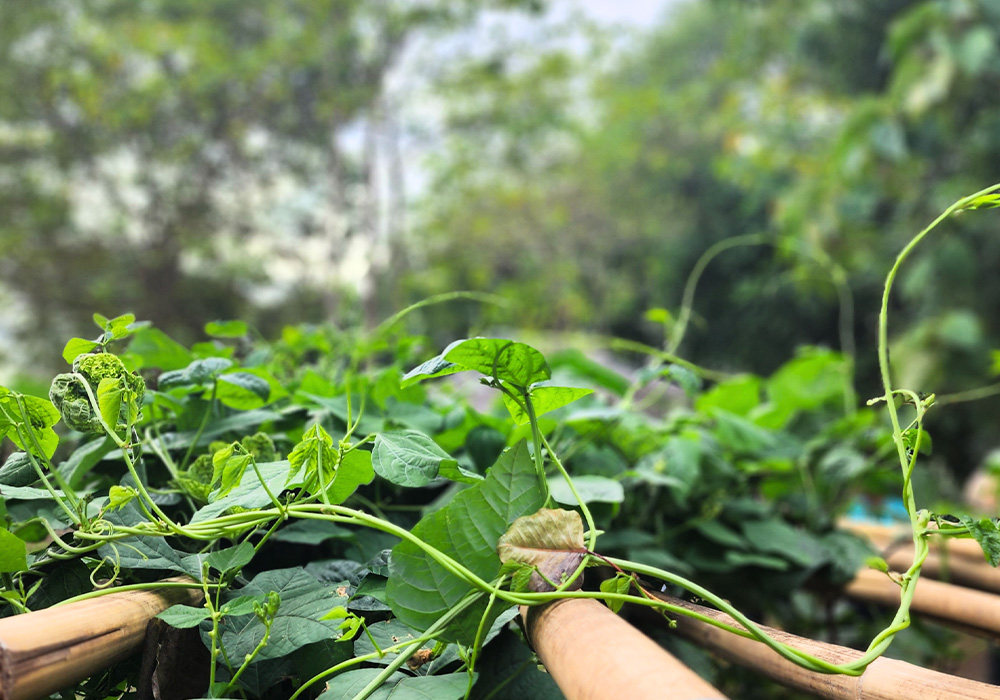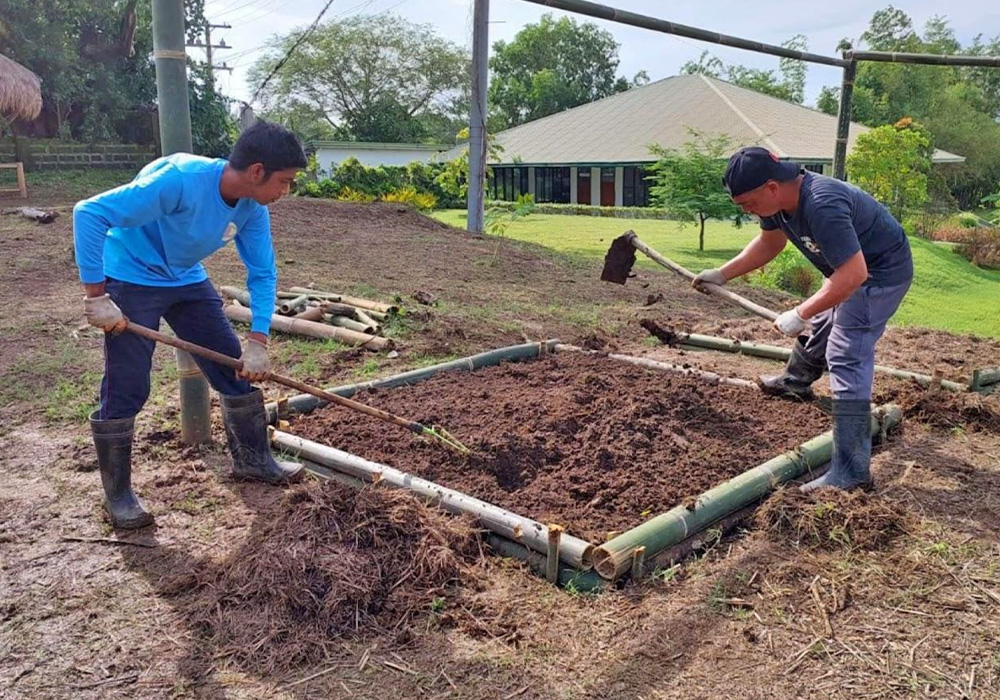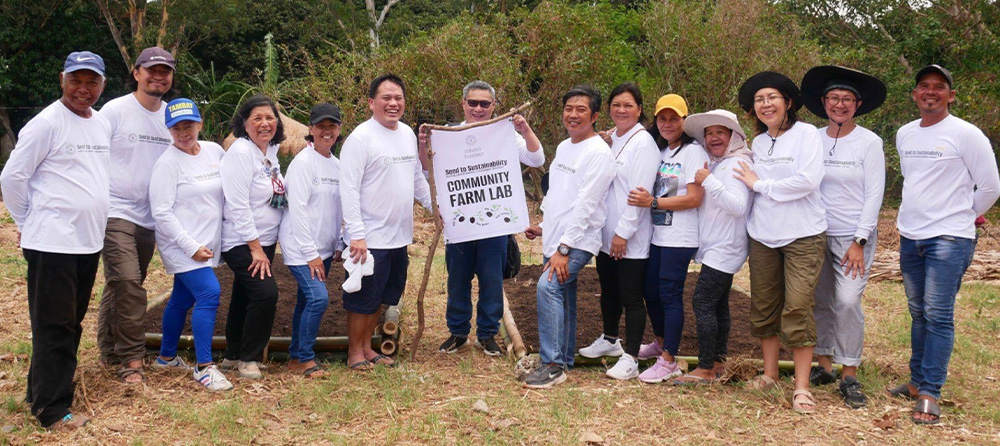
One of the leafy vegetables they grow. (MAHALINA FOUNDATION)
- admin
- 27 March 2024
- Feature
Planting The Seeds Of A Sustainable Local Ecosystem
“It’s better if you plant your own food instead of buying produce from the market that are grown with (harmful) chemicals,” shared Edelyn of Barangay Sta. Ana in Calatagan, Batangas. She, together with other community members, underwent training sessions on natural farming methods and related topics under Seeding Futures, a transformational development program that encourages the participants’ ability to imagine and create a better future for one’s self, family, and community.
“Sometimes, when you’re in a hurry preparing food, you tend to wash (the vegetables) just once," she elaborated. “You think it’s fine, but really, it isn’t. When you grow your own food, you know that no harmful chemicals were used. When you know how to grow your own food and if you have your own garden, you will even gain additional income!”
Rochelle, also of Sta. Ana, could not hide her excitement. “They trained us and taught us farming techniques. I’m really glad and excited because I realized I can do it!”
By empowering individuals in terms of utilizing locally available resources such as land, the program aims to improve their nutrition and economic condition to achieve a self-sustaining local ecosystem.
Aside from its transformative element and the expected economic benefits, Seeding Futures aims to contribute to climate change mitigation and adaptation by promoting natural farming and reduction of greenhouse emission from reduced use of chemical pesticides, encouraging biodiversity and diversification of crops, and waste reduction.
It also promotes inclusion by empowering women to gain control over the health and well-being of their families, and actively contribute to the local economy.

The capability-building activities covered the first 30 weeks of Seeding Futures, which includes three other barangays in Calatagan – Lucsuhin, Uno, and Balitoc – and is being implemented by the Mahalina Foundation. It started with a comprehensive orientation on the seed, followed with bi-monthly learning sessions on household composting, making organic fertilizer, and protocols of natural farming. These sessions are facilitated by permaculture specialist Karen Lee Hizola and Agro-Digital PH CEO Henry James Sison.

An assessment was scheduled on October 11, 2023 to determine whether the participants have acquired competencies in natural farming.
So far, all participating households have established their own home vegetable plots and/or container gardens. In addition, each participant is cultivating a training plot in the Mahalina Community Farm Lab. Participants from Barangay Uno, Barangay Sta. Ana, and Barangay Lucsuhin have also taken the initiative of organizing communal gardens.
Eighty-seven percent of the program participants are women, all of whom are mothers who also performed home chores as well as social obligations. Most of the men - all farmers - who comprised the original list dropped out early in the program due to work obligations.
For the women, the program activities are not only a welcome respite from the monotony of their daily routine; the ability to grow food for their families affirms their capacity to contribute positively to their families’ health and economic well-being. They have become advocates of the program, actively sharing their knowledge and experiences with their neighbors and friends.
Moreover, community champions have emerged and are being mentored as future program facilitators. Their firm grasp of the program’s underlying principles and natural farming protocols have enabled them to teach and guide their fellow participants. Among these champions are Myke, Rhoda, and Dan, who facilitated some of the program’s catch-up sessions for the newcomers from Sta. Ana. The newcomers replaced those who quit for various reasons, including health issues, change in family and work conditions, and schedule limitations.
By June 2023, the participants were already harvesting, and had started to produce enough harvest for sharing the following month. Some even produced more than what was assigned or expected. In addition, all barangays initiated looking for a community plot to augment their harvest from their household plots.
They also showed the ability to produce their own compost and natural fertilizers in June, although they were not consistent in producing more for their own use. Cecile of Lucsuhin said that in the past she would just throw away vegetable and fruit peels. Now, however, she keeps those peels to make fertilizer.
Another positive outcome is the newfound appreciation among program participants for naturally grown vegetables as an essential part of their families’ diet. Being able to harvest fresh produce from their home gardens on a regular basis has resulted in vegetables increasingly becoming a staple in home-cooked meals.

One challenge, though, was the frequency of tropical cyclones and heavy rains in August and September, inundating the vegetable plots of the participants. They were initially discouraged by the setback, but it gave them deeper insight into their vulnerability as a community, presenting the opportunity to further discuss risk management and explore mitigating strategies/initiatives.